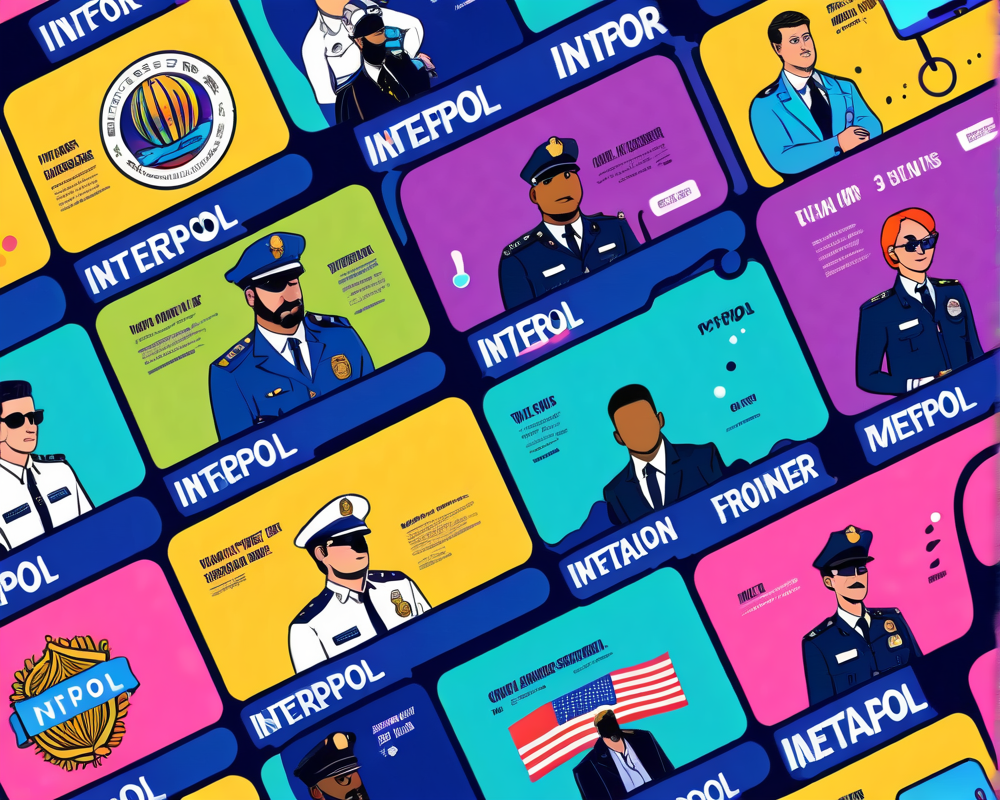Understanding Interpol’s Metaverse Ambitions
The International Criminal Police Organization, better known as Interpol, is embarking on a bold journey into the digital frontier of the metaverse. What does this mean for law enforcement? Well, for starters, it’s a brave new world filled with new rules, new players, and, yes, new crimes. Interpol Secretary General Jurgen Stock expressed a pressing need for oversight as the metaverse morphs from a digital curiosity into a bustling virtual town square. With criminals sharpening their skills in this unfathomably vast space, Interpol’s initiative is as timely as your grandma’s calls during dinner – unexpected yet crucial.
Defining Crime in a Digital Playground
One of the juicy little headaches facing Interpol is defining what constitutes a crime in the metaverse. Madan Oberoi, Interpol’s executive director of technology and innovation, voiced concerns about bridging the gap between physical-world crime definitions and their digital counterparts. In layman’s terms, if a virtual thief lifts your magic sword in a game, is that theft or just a bad day at fantasy camp? With many crimes like data theft and financial fraud looming large, distinguishing between pranks and real menace is a bit like playing bingo with a side of existential dread.
Expanding the Criminal Playbook
As the metaverse continues to expand, so too do the potential crimes. Stock outlined an impressive list of offenses that could potentially occur in this alternate reality, which reads like the world’s worst rap sheet: crimes against children, money laundering, ransomware, and more. If you thought your online dating troubles were bad, wait until a rogue NFT hacker makes off with your number! Yikes.
Common Metaverse Crimes to Watch Out For
- Data Theft
- Money Laundering
- Financial Fraud
- Counterfeiting
- Ransomware Attacks
- Sexual Assault and Harassment
Challenges Ahead for Interpol
Despite their best intentions, Interpol faces considerable hurdles in their metaverse pursuit. One of the bigger concerns is the sheer scale of the challenge: how do you police a universe that never sleeps? Both Stock and Oberoi acknowledge that raising awareness about potential crimes is a significant barrier. It’s like yelling into the void, hoping someone hears you in the next galaxy.
A Collective Approach
The excitement about policing the metaverse comes hand-in-hand with the notion of collaboration. “We need to sufficiently respond to that,” said Stock, underscoring the need for a collective action approach to tackle emerging threats. Whether you’re a believer in the power of everyone working together or not, there’s no denying that a united front could yield substantial benefits in keeping virtual citizens safe.
The Future of Policing in the Metaverse
As Interpol dives headfirst into the metaverse, their commitment opens up discussions about the future of crime and law enforcement in a digital age. With the establishment of new units to handle cryptocurrency crimes—because why stop at just one frontier—the agency is well on its way to staying relevant amid the rapid pace of technological change. So, whether you’re a gamer or just someone who likes to scroll through Twitter after work, keep an eye on this space because it’s about to get interesting. And remember, next time you’re looting a treasure chest, just be mindful – it might not be as harmless as it seems!




